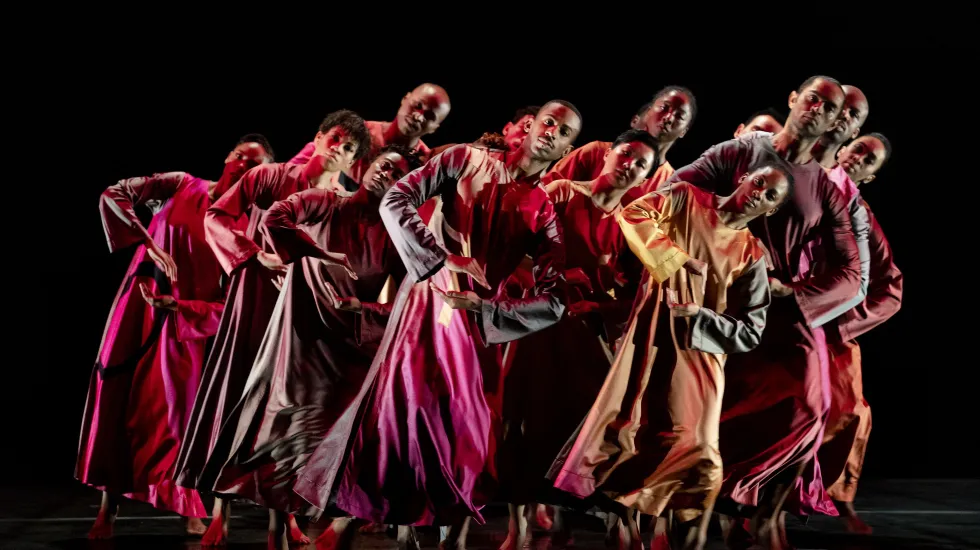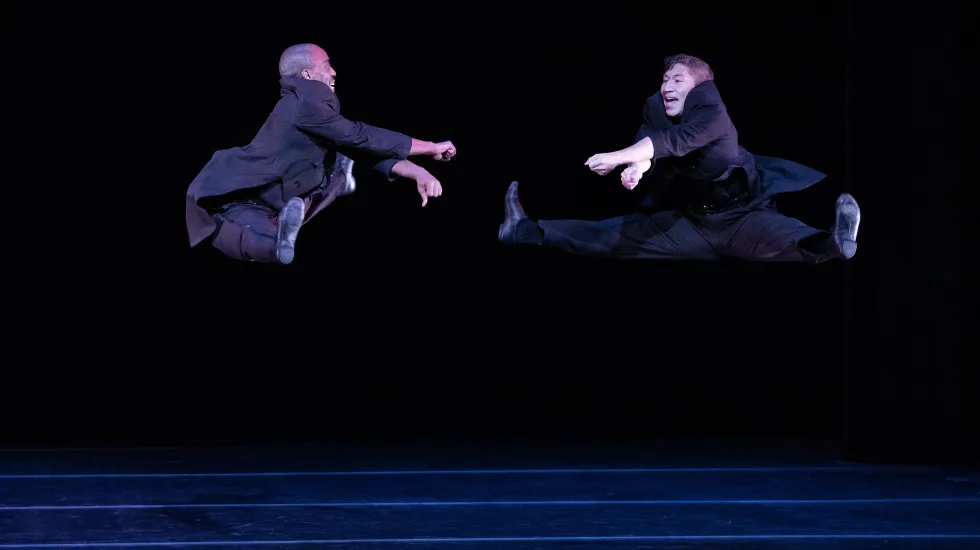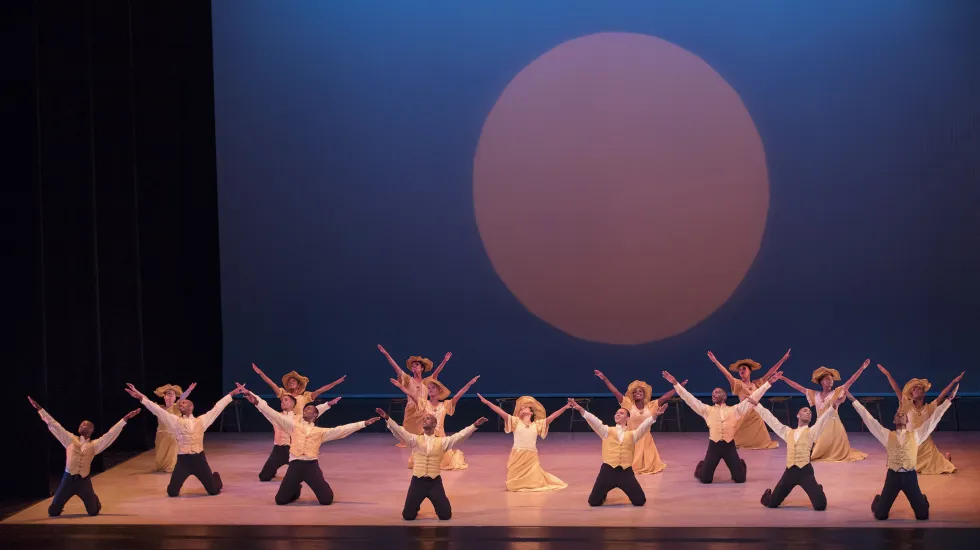
Sixty-four years since its founding by its talented namesake, the Alvin Ailey American Dance Theater remains one of this country’s most popular, vibrant and indomitable modern-dance companies.
The longstanding troupe returned to the Auditorium Theatre Wednesday evening to reprise what had been annual visits prior to the COVID-19 shutdown, and it was good to see these first-rate dancers back in Chicago after a two-year absence.
And there were no post-hiatus artistic compromises. The company brought 32 dancers, the same number it had in 2019 when it marked the 50th anniversary of its first trip to the Auditorium Theatre.
When: 7:30 p.m. March 3 and 4; 2 and 8 p.m. March 5; 3 p.m. March 6
Where: Auditorium Theatre, 50 E. Ida B. Wells
Tickets: $40-$130
Info: auditoriumtheatre.org
And in a commendably ambitious gambit, one that few other companies could pull off, it is presenting three different programs in repertory during its stay (through March 6), each receiving two performances. These include one featuring Rennie Harris’ “Lazarus” and another focused on historical works choreographed by Ailey himself.
The company’s engagement began Thursday evening with a tribute to Robert Battle, who is marking his 10th anniversary as the company’s artistic director. He is also a distinguished choreographer, and a contingent of his works have become part of the Ailey repertory. (The line-up will be repeated 8 p.m. March 5.)
A program, or, in this case, two-thirds of a 2¼-hour program, dedicated to a single choreographer can be challenging, because a sameness can set in if there are not enough differences in styles, moods or even numbers of dancers.
But good choreographers know how to vary things up, and that was certainly the case Thursday evening with the seven selections by Battle that nicely showed off his dancemaking abilities as well as the precision, athleticism and artistry of the Ailey dancers.
The evening opened with “Mass” (2004) the most portentous of Battle’s seven selections, featuring 16 dancers and running about 15 minutes. The choreographer has said the piece was inspired by the interaction of the chorus in Verdi’s celebrated Requiem Mass, but it is set to John Mackey’s “Mass,” a percussion piece with no overt sacred connotations.
With dancers wearing red, yellow and orange robes, the piece suggests some elusive community. Hints of religion pervade, like the dramatic, crisscrossing light from a single source above the stage to a recurring ritualistic gesture — cupped hands held horizontally in front of the body with the palms facing each other.
But all is not unity and harmony. The movements can be impulsive, even jerky at times and often one dancer becomes disassociated from the group. In one of the most striking moments, the dancers are clumped in a kind of circular mass. All heads face to the side or backwards except for one woman who shoots an unsettling gaze at the audience.

At the opposite end of the spectrum from the heaviness of “Mass” is “Ella” (2008), the title referencing the great jazz singer Ella Fitzgerald, who is featured here at her rollicking, scat-singing best in “Air Mail Special (Good Enough to Keep).”
Although this piece lasts just four minutes, it was one of the evening highlights with its fun, high-stepping, show-dance style that could easily be imagined on some Vaudeville stage. It ends with Renaldo Maurice leaping into the splits as Ghrai DeVore-Stokes offers a high kick.
The jazzy spirit of “Ella” continued with “For Four” (2021), this time with the straight-ahead sounds of Wynton Marsalis. With heads bobbing, fingers pointing, hands clapping and arms swinging, the four dancers strutted, shuffled and spun their way through this showy piece.

Other Battle selections included “Unfold” (2007) an elegant, slow-unfolding and not obvious romantic duet set to a Charpentier aria sung by Leontyne Price; “Takademe” (1999), a witty solo with Kanji Segawa that tries to physically manifest the wildly inventive vocalisms of Sheila Chandra, and a lively ensemble excerpt from “Love Stories” (2004) with music by Stevie Wonder.
It might be possible to debate the company’s choice to include Ailey’s 1960 masterpiece, “Revelations” on all its programs, but it’s impossible to question the quality of the resulting evening-ending performance Thursday. The dancers bring obvious respect and emotional investment to this classic, ensuring that it remains as fresh and resonant as ever.







